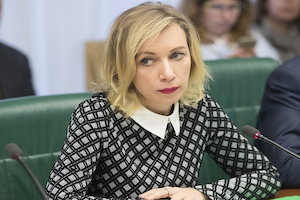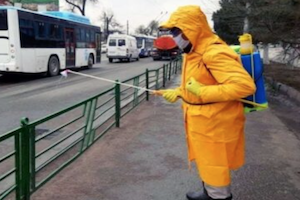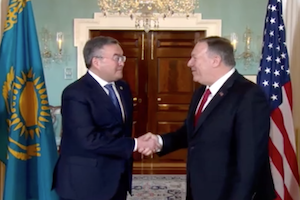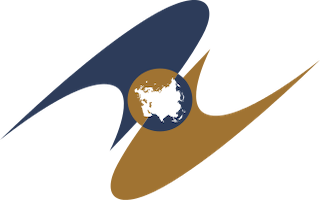Soft or Hard Power? Russia Reacts to Uzbekistan's Draft Language Policy
By Farkhod Tolipov
June 8, 2020, the CACI Analyst
In May 2020, Russian Ministry of Foreign Affairs spokesperson Maria Zakharova commented on a draft law initiated by Uzbekistan’s Ministry of Justice, stipulating the use of Uzbek language for the entire workflow in governmental bodies. According to the draft law, officials will be fined for failure to comply. Moscow reacted strongly to this political motion in Uzbekistan. Whereas support for national language and culture abroad is a normal feature of foreign policy and commonly regarded as a “soft power” tool; the statement of Russia’s MFA Spokesperson was received as another form of “hard power” in Uzbekistan.

Post-COVID-19: Challenges and Opportunities for Central Asia
By Bakhrom Radjabov
June 4, 2020, the CACI Analyst
Since January, COVID-19 (coronavirus) has reached the level of a global pandemic. At first, some Central Asian republics seemed to be virus-free islands with zero confirmed infection cases. Afghanistan confirmed its first COVID-19 case on February 24, followed by a closure of the borders with other Central Asian republics. Kazakhstan discovered its first cases of COVID-19 on March 13, and Uzbekistan on March 15. Kyrgyzstan confirmed its first case on March 18 whereas Tajikistan did not report any cases until April 30. Before this date, the country allowed mass gatherings, including the celebration of Navruz, which was cancelled by other Central Asian governments. Turkmen authorities have so far not officially reported any cases of COVID-19 in the country.

U.S. Presence in Central Asia: Realities and Perspectives
By Nurlan Aliyev
May 27, 2020, the CACI Analyst
In early February, U.S. Secretary of State Michael Pompeo visited Kazakhstan and Uzbekistan. He was received by the two heads of states in Nursultan and in Tashkent, Pompeo attended a C5+1 Ministerial with the foreign ministers of the five Central Asian republics to stress “U.S. support for a better connected, more prosperous, and more secure Central Asia” (State.gov). These thoughts are reflected in the new U.S. Central Asia Strategy. (State.gov). The renewed U.S. interest in Central Asia comes against the backdrop of China’s growing economic involvement in the region and Russia’s strong political and security relations with the Central Asian republics. Despite the Trump administration’s declarations of commitment to enhancing relations with the regional states, the perspectives of the U.S. in Central Asia should be examined.

Central Asia Caught in Economic Perfect Storm amid Oil Price Collapse and COVID-19 Pandemic
By Azad Garibov
May 12, 2020, the CACI Analyst
The collapse of oil prices and outbreak of a pandemic seems to catch Central Asia in an economic perfect storm. Some regional energy exporters will suffer directly from low oil prices and the pandemic; others will face adverse economic consequences more indirectly, in the form of reduced gas demand in China or decreased remittances sent by migrant workers.

The Eurasian Union Flunks Its Stress Test
By Stephen Blank
April 27, 2020, the CACI Analyst
Crises are often telling indicators of an institution’s fitness. The Coronavirus pandemic is currently putting governments and regional institutions like the EU under profoundly challenging stress tests. Another such regional institution is the Eurasian Economic Union (EEU), which Russian President Vladimir Putin and its champions have claimed is organized along the lines of the EU. Whatever the EU’s successes or failures, it is clear that the EEU has failed to display even a semblance of the EU’s cohesion. Moscow has simply disregarded the interests of its partners and pursued a sharply unilateralist policy that seriously complicated if not threatened its partners’ economies, particularly in Central Asia.



